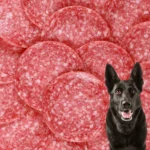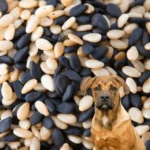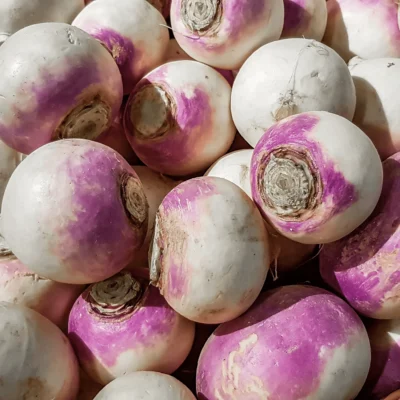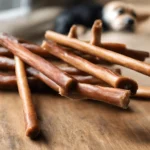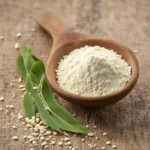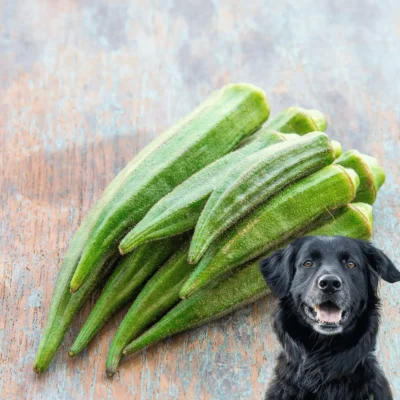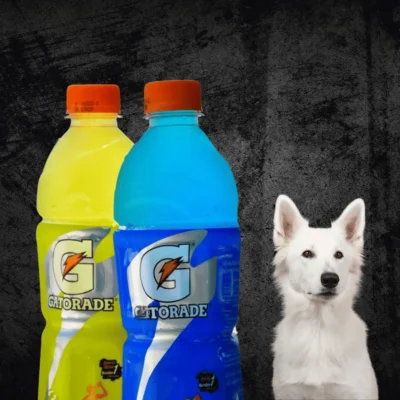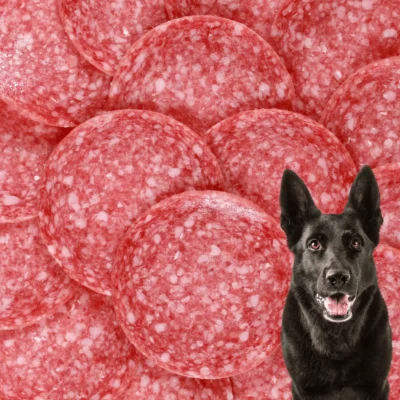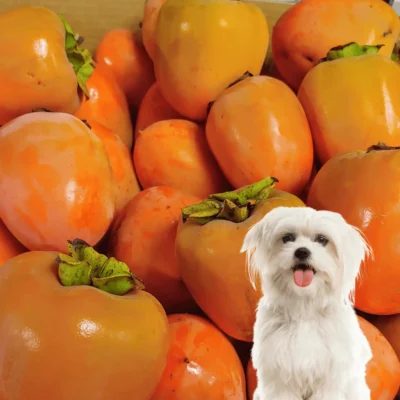In today’s dog food options, numerous ingredients make it hard to distinguish the good from the bad for our furry friends. For instance, some vegetables have excellent health benefits, while others can be risky. So, what about rutabagas? Can dogs eat rutabaga? The short answer is yes. Rutabagas are generally safe and healthy for dogs. They’re packed with essential nutrients that support your dog’s overall health. If you want to discover more about the benefits of rutabagas and the best way to feed them to your dog, keep reading below.
In this article, we explore the safety of feeding rutabaga to dogs. We’ll examine the potential benefits and risks associated with rutabaga consumption. Additionally, we’ll provide insights on how to safely introduce rutabaga into your dog’s diet.
Here are the topics we’re going to discuss in this blog post:
- What is rutabaga?
- Can dogs eat rutabaga?
- Nutritional value of rutabaga
- Health benefits of rutabaga for dogs
- Risks of feeding rutabaga to your dogs
- Can dogs eat cooked rutabaga?
- How can you safely give rutabaga to your dog?
- Which foods can dogs not eat?
What is Rutabaga?
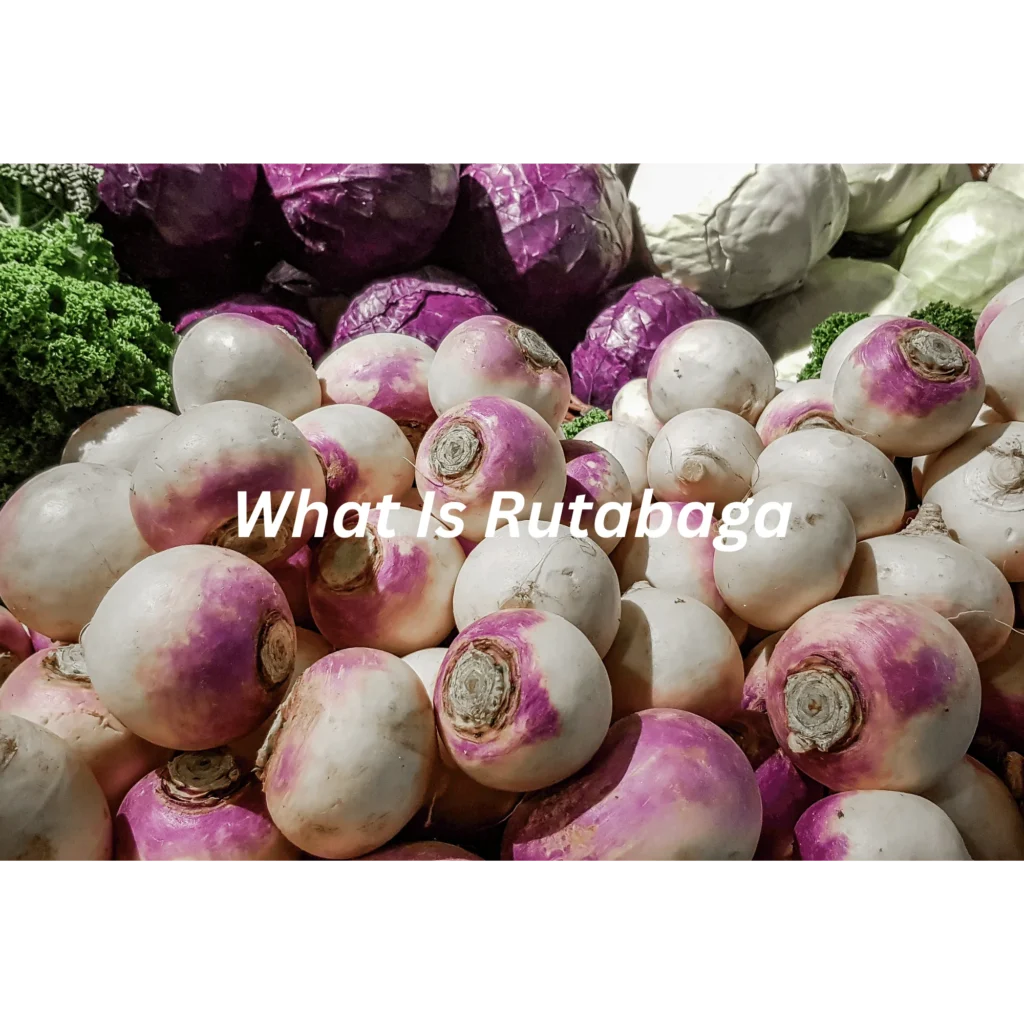
Rutabaga, often confused with turnips, is a root vegetable with a similar shape and size. However, it distinguishes itself with its sweeter and softer yellow or orange flesh. Also called Swedish turnip or wax turnip, it belongs to the Brassica family, alongside cabbage, kale, and Brussels sprouts.
While rutabaga can be consumed raw, it’s typically boiled or roasted and can be mashed or pureed for soups and stews. When selecting rutabaga, choose a heavy one with smooth, dull skin, avoiding any that feel soft or have blemishes. Storing rutabaga in the fridge allows it to keep well for up to two weeks.
Can Dogs Eat Rutabaga?
Yes, dogs can eat rutabaga in moderation and when properly prepared. Rutabaga is a root vegetable that contains essential nutrients, including vitamins C and K and dietary fiber. Beyond its nutritional value, rutabaga is known for its flavorful and rich taste. Some savvy dog owners even incorporate rutabaga into their pet’s diet to support a healthy digestive system.
However, it’s crucial to approach treats for your dog with care. While Swedish turnips can be a special and healthy addition, it’s important to be mindful not to feed dogs everything humans eat, as some foods may not suit their well-being. Before giving your dog any new foods, it’s always a good idea to consult with a veterinarian.
Nutritional Value of Rutabaga:
Rutabaga is a nutritious root vegetable that provides a variety of essential nutrients. The nutritional value of rutabaga per 100 grams (raw) includes:
- Calories: Approximately 37 calories
- Carbohydrates: About 8.4 grams
- Dietary Fiber: Roughly 2.3 grams
- Sugars: Around 5 grams
- Protein: About 1.1 grams
- Fat: Almost 0.2 grams
- Vitamin C: Approximately 25 mg (42% of the recommended daily allowance)
- Vitamin K: About 1.2 micrograms (2% of the recommended daily allowance)
- Vitamin E: About 0.2 mg
- B-complex vitamins: include small amounts of B-vitamins such as thiamine, riboflavin, niacin, pantothenic acid, vitamin B6, and folate.
Rutabagas are also a good source of minerals, including potassium, manganese, magnesium, phosphorus, and trace amounts of zinc, copper, and iron.
Health Benefits of Rutabaga for Dogs:
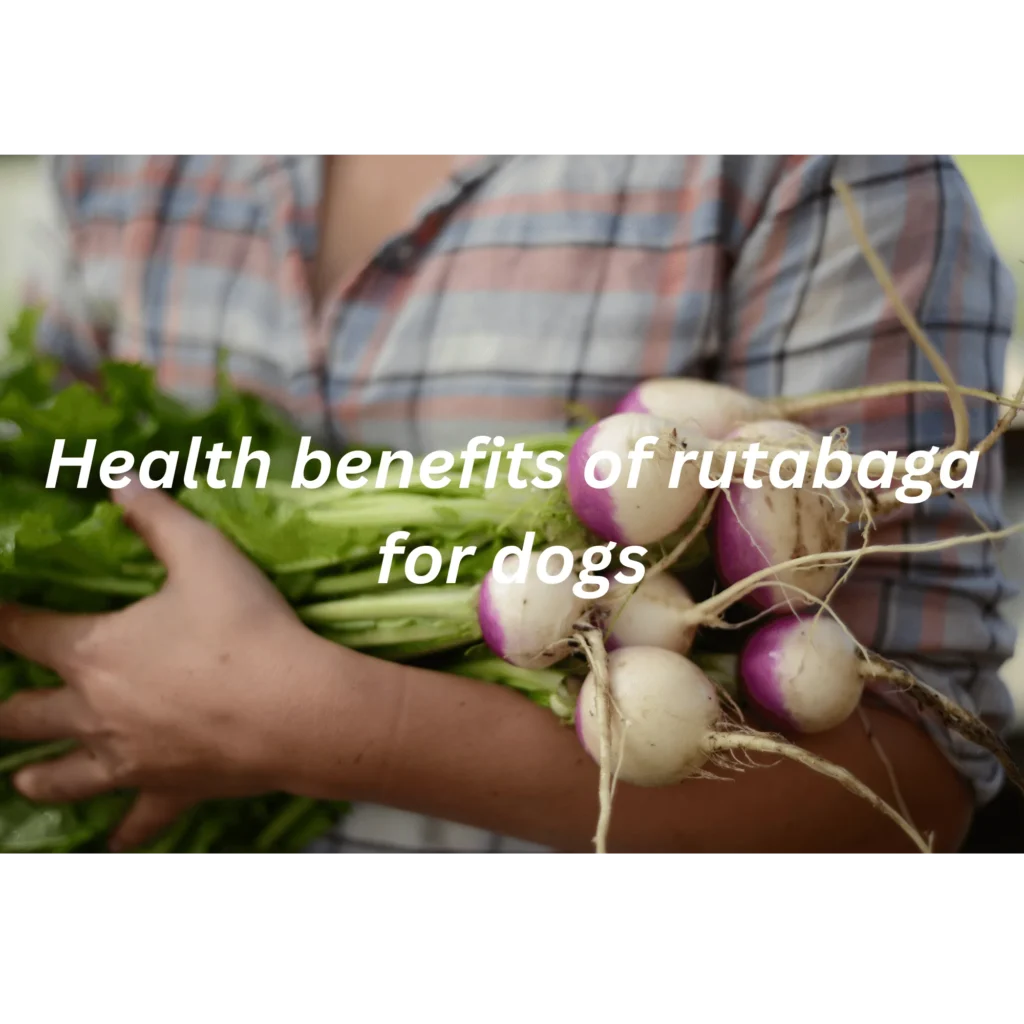
Rutabaga can offer several health benefits for dogs when incorporated into their diet in moderation. Here are some potential advantages:
- Vitamins and Minerals:
Rutabaga offers various vitamins and minerals that can be beneficial for dogs when included in their diet. Vitamin C supports the immune system, helping dogs resist infections and maintain overall health.
Vitamin K is essential for blood clotting, and vitamin K plays a crucial role in wound healing and overall blood coagulation. Vitamin B contributes to energy metabolism, neurological function, and the formation of red blood cells.
Essential minerals are crucial for overall health. Potassium supports heart and muscle function, maintaining fluid balance. Magnesium aids muscle, nerve, and bone health, as well as energy production.
Phosphorus is essential for bone and tooth formation and energy metabolism. Zinc supports immune function, wound healing, and skin health, while copper is vital for red blood cell formation and overall immune function.
- Dietary Fiber:
Rutabaga is rich in dietary fiber, which aids in digestion. Fiber adds bulk to the stool, promoting regular bowel movements and preventing constipation in dogs.
Dietary fiber provides a sense of fullness, which can help dogs feel satisfied with their meals. This feeling of satiety may be beneficial for weight management by preventing overeating.
Including fiber in your dog’s diet can be beneficial for stabilizing blood sugar levels. This is especially crucial for dogs with diabetes or those at risk of developing the condition, as fiber helps slow down the absorption of glucose.
- Antioxidants Properties:
Antioxidants contribute to a healthy immune system by reducing inflammation and supporting the body’s ability to fight off infections and diseases.
Antioxidants, including beta-carotene, promote skin health and contribute to a shiny, lustrous coat in dogs. They can help combat the effects of environmental stressors on the skin and fur.
Beta-carotene, a precursor to vitamin A, plays a vital role in maintaining good vision for dogs. Rutabaga, rich in antioxidants, contributes to overall eye health by supporting the presence of essential nutrients.
- Low in Calories:
Rutabaga can be included in the diet of dogs that require weight management. Its low-calorie content allows for the addition of volume to the diet without a significant increase in calories, helping dogs feel fuller without excessive caloric intake.
Rutabaga can serve as a healthy and low-calorie snack option for dogs. Providing low-calorie snacks can be beneficial for dogs that enjoy treats but need to watch their overall calorie intake.
- Hydration:
Rutabaga has a moderate water content, contributing to a dog’s overall daily water intake. Adequate hydration is crucial for various bodily functions, including digestion, nutrient absorption, and temperature regulation.
Including rutabaga in a dog’s diet can provide an additional source of hydration, especially when offered in its raw form. This can be beneficial for dogs that may not consume enough water through drinking alone.
Risks of Feeding Rutabag to Your Dogs:
While rutabaga can be a nutritious addition to a dog’s diet when fed in moderation and prepared properly, there are potential perils and considerations to keep in mind:
1. Digestive Upset:
Rutabaga is rich in dietary fiber, which, while beneficial for digestion in moderation, can lead to gastrointestinal discomfort if introduced too quickly or in excessive amounts.
To minimize the risk of digestive upset, introduce rutabaga gradually into your dog’s diet. Start with small amounts and observe how your dog reacts before incorporating larger portions.
2. Caloric Intake:
Feeding large quantities of rutabaga, or any food, without considering the overall caloric content can contribute to an imbalance in a dog’s diet. Excessive caloric intake may lead to weight gain and obesity.
Control the portion sizes when feeding rutabaga to avoid overfeeding. Treat rutabaga as a supplemental, low-calorie addition to the main diet rather than a primary source of calories.
3. Allergies and Sensitivities:
Dogs can develop allergies to specific foods, including vegetables like rutabaga. Common signs of food allergies in dogs include itching, redness, swelling, gastrointestinal upset, or ear infections.
Each dog is unique, and what is well-tolerated by one dog may cause issues for another. Monitor your dog closely when introducing rutabaga, especially if it’s their first time consuming it.
Can Dogs Eat Cooked Rutabaga?
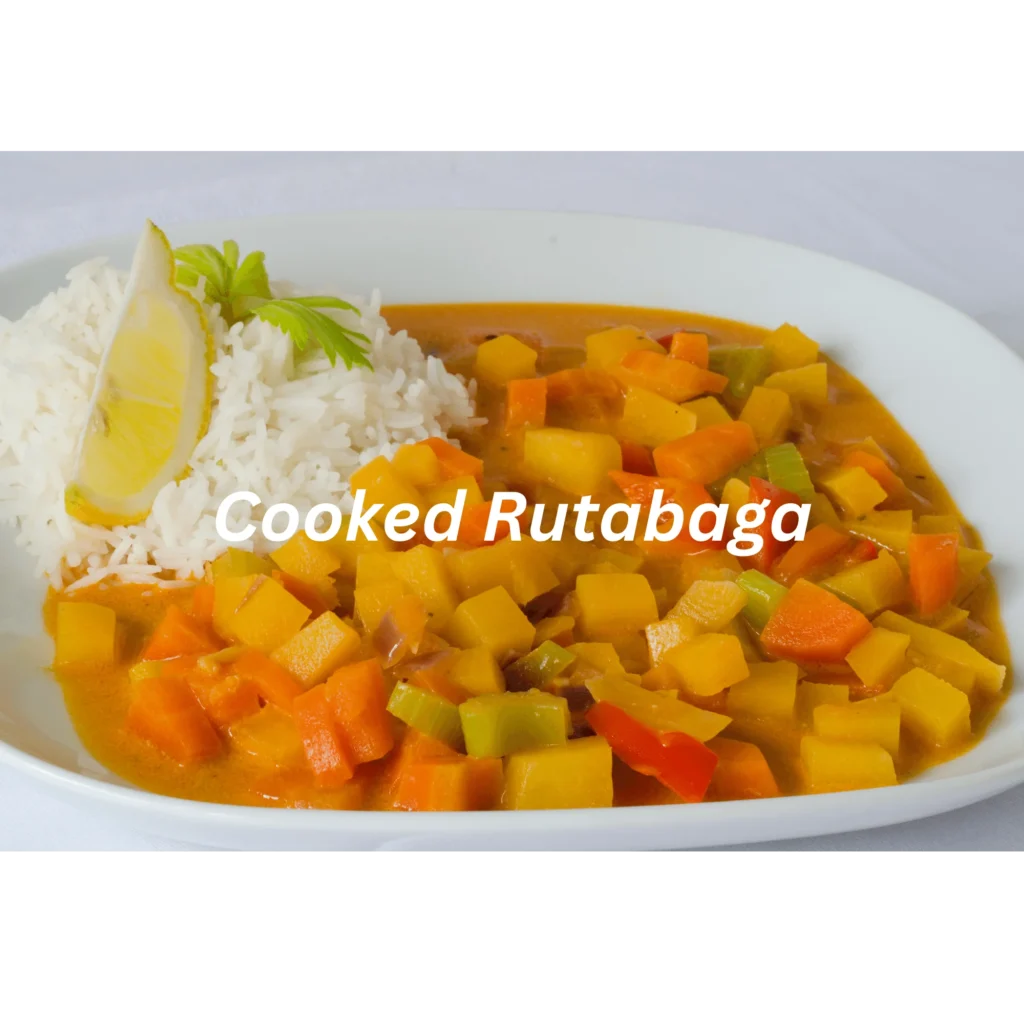
Rutabaga is a safe root vegetable for dogs in moderation, especially when cooked. Cooked rutabaga is gentle on the stomach and suitable for dogs with sensitivities. Ensure to remove the skin and tough parts before serving your dog.
It can be served plain or mixed with soft foods like cooked chicken or rice. Introduce rutabaga gradually, starting with a small amount, to gauge your dog’s tolerance.
How Can You Safely Give Rutabaga to Your Dog?
Dogs can enjoy rutabaga both raw and cooked, but opting for organic rutabaga ensures maximum nutritional benefits for your furry friend. Before serving, make sure to wash the rutabaga thoroughly to remove dirt and bugs commonly found on ground veggies.
Regardless of whether you feed rutabaga raw or cooked, it’s advisable to cut it into smaller pieces to prevent choking. If you choose to cook it, options like steaming, boiling, or roasting work well. However, avoid using spices and oils, as they may upset your dog’s sensitive stomach.
For cooked rutabagas, you have various options, such as steaming, boiling, or roasting. However, refrain from using spices, oils, or additives that you might use in your own food, as these can potentially upset your dog’s stomach. Keeping it simple and plain is the key when preparing rutabagas for your furry friend.
Which Foods Can Dogs Not Eat?
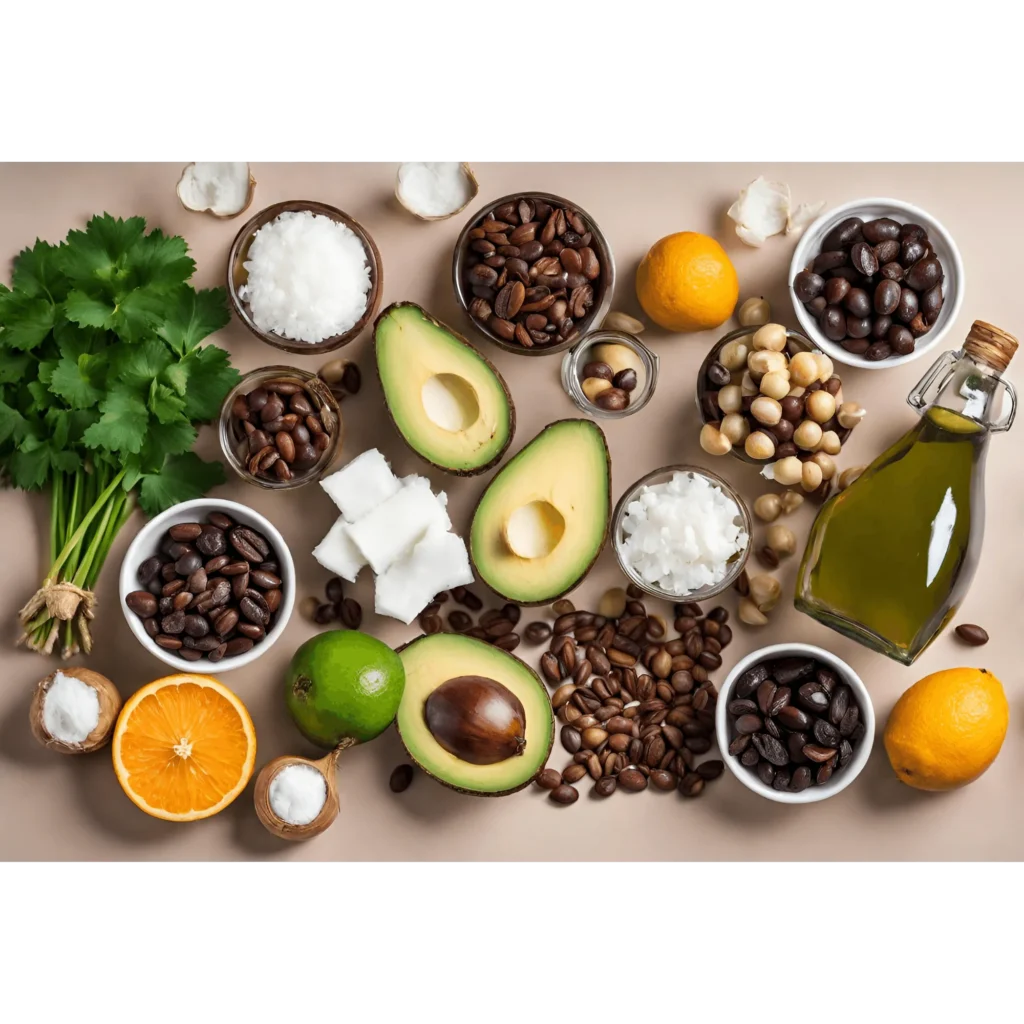
It’s crucial to highlight foods that can be harmful to dogs. The following items are considered dangerous for dogs to ingest:
- Alcohol
- Avocado
- Chocolate, coffee, and caffeine
- Citrus
- Coconut and coconut oil
- Grapes and raisins
- Macadamia nuts
- Dairy
- Nuts
- Onions, garlic, and chives
Ensuring that your dog avoids these items is essential for their well-being. If you suspect your dog has ingested any of these harmful foods, it’s important to contact your veterinarian promptly for guidance and potential intervention.
Conclusion:
In conclusion, rutabaga can be a nutritious and flavorful addition to your dog’s diet when introduced cautiously and in moderation. Whether served raw or cooked, this root vegetable offers essential vitamins, minerals, and dietary fiber that contribute to your dog’s overall well-being. However, it’s vital to prioritize your dog’s safety by avoiding potential choking hazards and ensuring proper preparation.
While rutabaga brings several health benefits, it’s equally crucial to be aware of foods that can harm your dog’s health. The list of hazardous foods, including alcohol, avocado, chocolate, and others, emphasizes the importance of responsible pet care and being mindful of what your dog consumes.
As with any dietary changes, it’s advisable to consult with your veterinarian before incorporating new foods into your dog’s diet, ensuring that their unique health needs and sensitivities are considered. By providing a balanced and thoughtfully curated diet, you can contribute to your dog’s overall health and happiness.
FAQs:
Can dogs eat rutabaga?
Yes, dogs can safely eat rutabaga in moderation. It’s a nutritious root vegetable that can be a healthy addition to their diet.
Is it safe for dogs to eat rutabaga?
Yes, dogs can eat raw rutabaga. However, it’s essential to cut it into small, bite-sized pieces to prevent choking.
What nutritional benefits does rutabaga offer to dogs?
Rutabaga is rich in vitamins C and K, dietary fiber, and various minerals, offering immune system support, digestive health, and more.
Can dogs eat rutabaga raw?
Dogs can eat raw rutabaga, but it’s recommended to cut it into small, bite-sized pieces to facilitate safe chewing.
Are there any risks associated with feeding rutabaga to dogs?
Excessive consumption may lead to digestive discomfort. Additionally, always be cautious of potential choking hazards, especially when offering large pieces.


